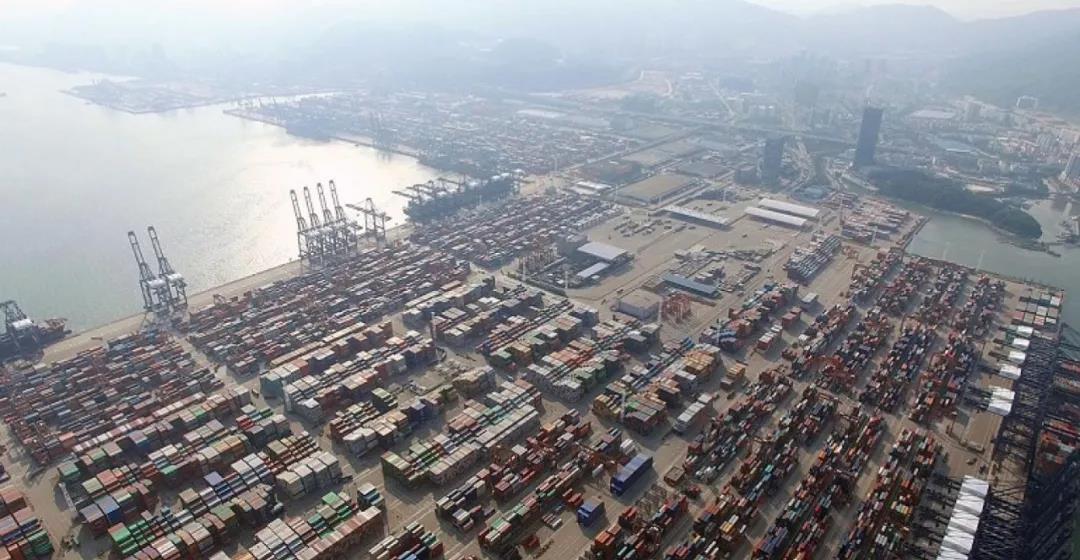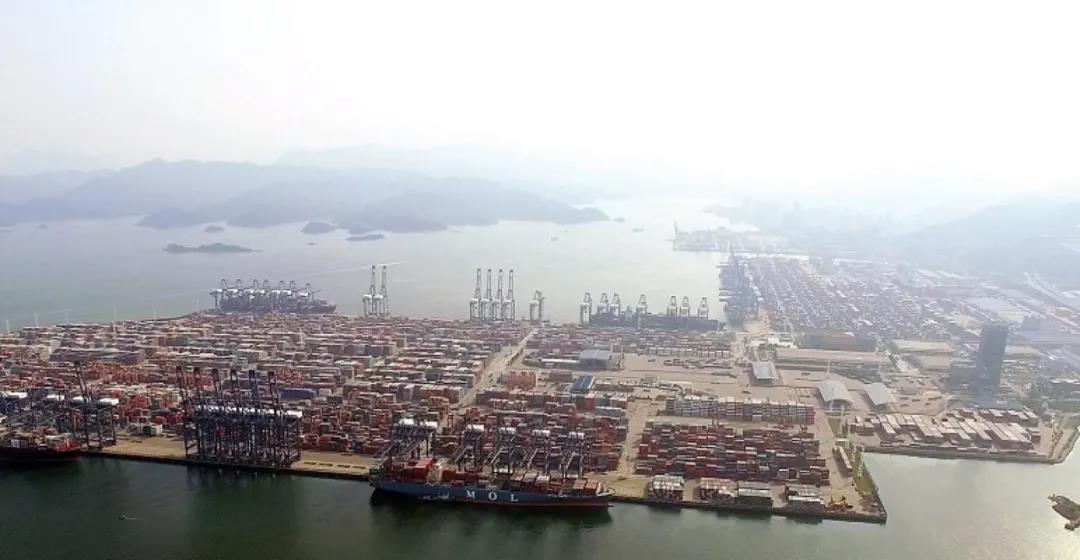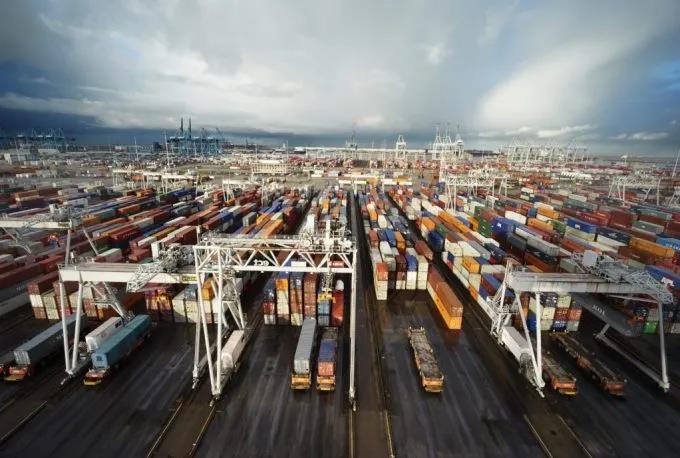The congestion of Yantian Port has extended to the surrounding ports. As a large number of ships have canceled their attachment to the severely congested Yantian Port, it has brought a serious burden to the surrounding ports - the delay of Nansha Port and Shekou Port continues to increase.

Affected by the congestion at Yantian Port, the number of blank flights in the first half of June increased by 300%, and container freight continued to soar to an unprecedented level.
Project44 analysts said that during the period from June 1 to 15, the global container liner was suspended for 298 voyages, with a total capacity of more than 3 million TEU, which means that the suspended voyages within a month increased by 300%. Although not all air traffic is caused by Yantian International Container Terminal, its impact is obvious.
Josh Brazil, the vice president in charge of marketing of project44, said: "Although Yantian Port was the epicenter of the accident, these figures have brought trouble to the entire shipping industry, especially those companies that rely on these routes. Even the freight transport that is not directly affected by the situation in Yantian will also be affected, because the operators adjust the network to avoid its congestion."
Josh Brazil said that as of June 24, the number of blank flights was still rising, and would decline later, depending on the continued control of the epidemic in the port and South China.
Maersk said that as of June 21, the density of the parking lot in Nansha has reached 100%, and it is expected that the ships in Nansha Port will continue to be delayed for 4-5 days in the next week. Nansha only accepts export containers loaded seven days before the estimated arrival time of the ship, and only accepts the advance reservation of the truck transportation company confirmed at the terminal. The supply of 40-foot containers in Yantian and Shekou is still tight, and Maersk recommends that customers use 20-foot containers instead.
The Shekou Port, including Chiwan Container Terminal, Mawan Container Terminal and Shekou Container Terminal, has tightened its regulations to accept only locks loaded with export goods within 4 days before the estimated arrival time of the ship.

Shekou Port (including Chiwan Container Terminal, Mawan Container Terminal and Shekou Container Terminal) has tightened its rules and only accepts export reservations within 4 days before the arrival of the ship. As far as Yantian itself is concerned, Maersk reported that the operating capacity of the eastern area of the terminal is about 54% of the normal capacity, and gradually recovered, with the density of the yard reduced to 60%. Maersk expects that flights in Yantian will be "delayed for more than 4 days" in the next week.
On June 21, Maersk reported that the number of vessels operated by Maersk and its partners to cancel their attachment to Yantian increased from 84 last week to 90. Containers loaded with imported goods on these vessels are expected to be delayed for more than three weeks.
Project 44 warned that even if the operation returned to normal, it might take several weeks to deal with the backlog of containers. The analyst said: "If the Chinese authorities extend their strict control measures, the daily blank navigation rate of up to double digits may continue until July, and the supply chain of this important global port will be in chaos until the summer."
At present, the consolidation market is facing various problems caused by the backlog of goods, ship delay, port skipping, and shortage of containers and space. Some analysts said that once the port resumed normal operation, it is expected that there will be a surge in the demand for goods exports in the next 2-5 weeks, as well as a chain reaction caused by the interruption of the allocation of empty containers returning to South China, and the subsequent impact of this event will continue for more than half a year.
Ryan Petersen, chief executive officer of Flexport, said that there was no single solution to the problem of shipping delays that disrupted the global economy. It may take some time to solve this global shipping delay, especially in the peak holiday season and Christmas.
At the same time, the continuous congestion, transport capacity and equipment shortage are driving the container freight rate to rise. On June 17, Drury's World Container Composite Index rose 3.4%, or 231 US dollars, to 6957.44 US dollars/FEU. The price of Shanghai - Rotterdam rose by 6% from the previous week, reaching US $11196 per TEU, a year-on-year increase of 534%. Drury predicted that due to the implementation of GRI, high production and equipment shortage, the rate would rise in the next week.

The congestion in South China has led to congestion surcharges imposed by shipping companies, and FAK and insurance premiums continue to rise. In the week ending June 18, S&P Global Platts said that the premium service charge for goods from North Asia to the Pacific coast of the United States was US $9000-10000/FEU. The freight rate to the Atlantic coast of the United States (transatlantic to the east of the United States) is significantly higher than that across the Pacific, and the price of all premium bookings is more than $15000/FEU, but the source said that the freight rate is close to $18000 to $20000/FEU. A North American shipper said: "The premium is approaching the FAK rate in March and April." The flow of inland containers at the destination port is slow, the number of empty flights increases, and the freight rate further increases. Even the premium service can not guarantee the space. It is recommended to book the cabin four weeks in advance.
Asia-US (trans-Pacific route): tight accommodation on the west/east coast of North America; Due to multiple factors such as port congestion, shipping schedule delay, transport capacity imbalance, inland transport delay, and the continued strong demand for imports in the Americas, many shipping companies announced that the GRI and PSS that were raised and levied in July; It is inevitable that the freight rate will rise further in July. It should be noted that due to port congestion, the transport capacity is in short supply, and the revolving pressure of empty containers increases; The shipping company is limited to receiving goods at inland points.
Asia-Europe route: Europe and the Mediterranean market demand is strong, the space is very tight, the SCFI index European line is rising steadily, and the freight rate reaches a record high; Due to the epidemic prevention and control measures in South China, the terminal tightened the operation process and operated slowly; The ships have cancelled their attachment to Yantian Terminal, and some goods have been shipped from East China. The shortage of containers in the East China market will be further aggravated in the coming weeks. Freight rates will continue to rise.
This article comes from the Maritime Network